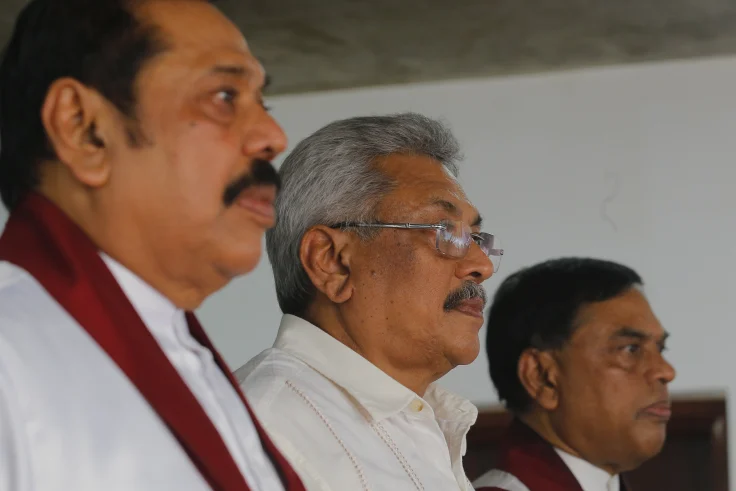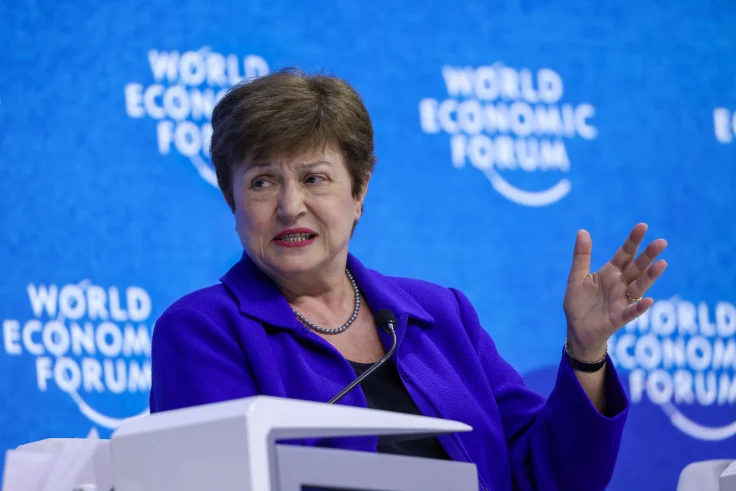There is nothing new about nations collapsing under the weight of their debts. But Sri Lanka’s awful predicament highlights three new aspects of our world.
It’s a sign of our times, first, because Sri Lanka’s debt crisis is not a one-off but likely the first in a new wave of national sovereign debt disasters.
Second, while China has been the biggest lender to many poor countries for years now, this is the first major, uncontrolled collapse where China is a dominant lender.
This throws open big questions about how it handles its new power over the fates of nations when they’re at their most vulnerable.
Third is that, for all its size, China is starting to run into debt problems of its own. Can it continue to be the major source of loans to the developing world?
When Sri Lanka’s President Gotabaya Rajapaksa abandoned his palace to rampaging protesters last week and fled abroad – emailing his resignation from Singapore in a contemporary twist – it brought the political crisis to a head. A parliamentary vote for a new president is expected this week.
But the economic suffering goes on. About a quarter of its 22 million people aren’t getting enough to eat as a result of government incompetence, according to the World Food Program. Lacking the foreign exchange to pay for imports, the country survives on bare subsistence.
Sri Lanka’s government should have gone to the global emergency lender – the International Monetary Fund – for help when the pandemic first hit and its foreign exchange earnings from tourism evaporated.
But, instead, it went to Beijing, the so-called ATM of the developing world. China has more money on loan to the world’s poor countries than the combined lending of the 22 rich nations that make up the Paris Club of creditor countries, according to the World Bank.
Beijing loaned Sri Lanka an extra $US3 billion. But without a debt restructure on its existing $US35 billion or a policy correction, this money was soon gone too.
The International Crisis Group’s Alan Keenan faults Beijing on two grounds. One, it encouraged expensive infrastructure projects that failed to produce major economic returns.
“Equally important has been their active political support for the ruling Rajapaksa family and its policies,” says Keenan. “These political failures are at the heart of Sri Lanka’s economic collapse.”
Sri Lanka has since turned to the IMF for emergency credit but the Washington-based lender can’t negotiate with a country that has no leader.
The island nation was the most exuberantly reckless, but it’s one of many countries carrying more debt than it can afford.
Before the pandemic, the IMF was supporting about 20 countries. Today it supports 90. COVID cost countries everywhere a fortune.
Now there is a new drama. The US is raising interest rates in an effort to curb inflation. But higher American interest rates are a magnet for investors’ capital as it is drawn to higher returns.
Capital has started rushing out of the rest of the world and gushing into the US. As a result, the greenback is surging against other currencies, even reaching parity with the euro for the first time in 20 years.
This just makes it even harder for poor countries to pay for their imports and service their foreign debts. In fact, most of the world’s poor countries – 60 per cent of them – are now in debt distress or at high risk, according to the World Bank.
“Countries with high debt levels and limited policy space will face additional strains,” said IMF Managing Director Kristalina Georgieva on Saturday. “Look no further than Sri Lanka as a warning sign.”
Others high on the danger list include Laos, Pakistan, Bangladesh and the Maldives. And guess who has been a big lender to all of them? Their friendly neighbourhood ATM, China. As one commentator put it, “China’s Belt and Road program has hit a major pothole”.
Even worse for Beijing, China has been lending prodigious sums to Russia in recent years – $US125 billion. In fact, Beijing is Russia’s biggest creditor, says the World Bank. But with Moscow groaning under economic sanctions as it tries to pay for a war, Vladimir Putin is hardly a good credit risk.
SMH


